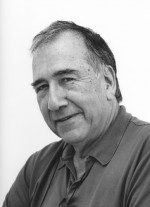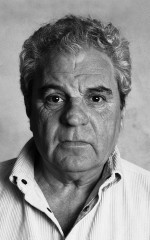Writers and Barcelona
Barcelona has been and keeps being a perfect scene for literary works, a source of inspiration for writers who were born here and a welcoming place for writers from around the world who have described it in their books.
Writer and politician. At a very young age he travelled to Indochina where he came into contact with communist revolutionaries. He was an anti-fascist militant, and travelled to Spain at the beginning of the Civil War to join the Republican forces. As a result of his experience, he wrote L’espoir (1937), later converted to the film Espoir, sierra de Teruel(1945), partially filmed in Montjuïc.
Surrealist poet. Awarded the Goncourt Prize in 1967 for La Marge, set in the Barcelona of prostitution from the sixties, an experimental work of literature.
Scriptwriter and writer. Author of children’s and young people’s books. She is well-known for her column in the newspaper ARA La pitjor mare del món [The Worst Mother in the World] which has been published by Columna. “Allò de l’avi” (2016) portrays the beginning of twenty-first century Barcelona with its political clashes and cases of corruption.
Catalan poet and writer, at the forefront of modernist poetry. He was a renowned member of the Renaissance and creator of the “theory of the written word”. As a contributor as a debater for different newspapers, he reacted against the political violence that occurred during the so-called “Tragic Week” He held the honourable title of “Mestre en Gai Saber”, and was the founder of the philology department of the Institute of Catalan Studies. Throughout his extensive work --poetry, articles, translations-- he has always focused on the city of Barcelona. The house where he lived is today the Joan Maragall Archive and is open to visitors.

Poet and architect. He wrote over twenty poetry books. His most well-known work, Casa de la misericòrdia --the hospice at Ciutat Vella-- won him the National Culture Prize in 2008. His work has been translated into Russian, Hebrew, and German.
Writer. He made his début in poetry, a genre which has been present throughout his career as a writer. His style is concise and emotive. His work is dedicated to the youngest readers, and he has received favourable reviews for silenci dels arbres (2004) inspired in an anecdote from L’agulla daurada by Montserrat Roig. In his forth novel, L’últim dia abans de demà he was finalist for the Premi Crexells Award, in which the city is portrayed in this fragmented memoire.

Member of the so-called Generation of ‘50, he declares himself to be a “voyeur de l’anarquisme”. His work advocates this memory and awareness of the class system as he portrays the districts of Gràcia, Guinardó and Carmel, immortalized in Últimas tardes con Teresa with the legendary character of Pijoaparte. He was winner of the Planeta Prize and the Cervantes Prize. He formed part of the Escola de Barcelona
Writer and scriptwriter. He is one of the major authors of detective novels with an array of international awards to his name. His vast amount of written work includes over one hundred books for adults, children and young readers, which are very often set in the city of Barcelona. One of his most commended pieces is Barcelona Tràgica which tells the story of the famous “Tragic Week” of 1909.
Spanish language novelist and writer. He has a degree and PhD in French Literature from the University of Lille and in Theory of Art and Comparative Literature from the University of Granada. He made an impressive début in 2012 with his first novel, and in 2016 he published his second novel Tuyo es el mañana set in Barcelona, in which fate marks the destiny of the characters: a girl, a dog, a woman, a man, an old man, and a picture. He is member of the select Oulipo, a group set up for the research into new language formats, created by Raymond Queneau and François Le Lionnais. Previous members include George Perec, Italo Calvino and Marcel Duchamp.
She formed part of a generation of poets including Enric Casasses, Dolors Miquel, Martí Sales, Andreu Subirats and Guim Valls, who seem to make time stand still in the city's bars and plazas. In the year 2000, she published her first book, L’acròbata tampoc en sortirà il·lès which won the Amadeu Oller Prize. In the words of one of the members of the jury, it is “a deep-rooted urban-inspired chronicle that is infuriatingly provocative.” Along with some of her poetry colleagues, they have set up a literary group, Tucson, at a venue between Abecederia market and Carrer Còrsega.



